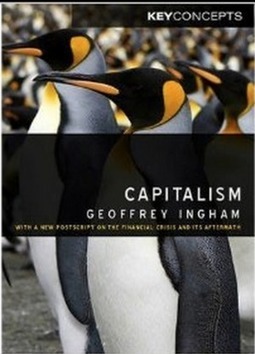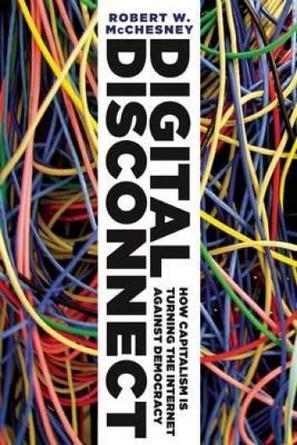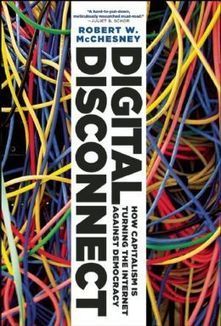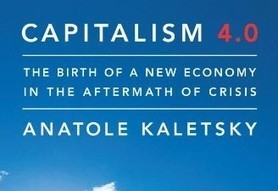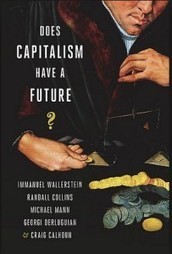 Your new post is loading...
The Power to Create Money out of Thin Air is a review of Geoffrey Ingham’s book, Capitalism (Polity Press, first published 2008). However, like all the best reviews, it has become a hook on which to hang discussion of the author’s contemporary pet themes. Here, these include primarily, capitalism’s ‘elastic production of money’. However, Pettifor also takes the opportunity to explain why misunderstanding about the creation of money is so widespread, and why orthodox economists are mainly responsible for the confusion.
* Book: The Making of Global Capitalism. Leo Panitch and Sam Gindin.
The Occupy movement has emerged in a historical crisis of global capitalism. It struggles for the reappropriation of the commodified commons. Communications are part of the commons of society. Yet contemporary social media are ridden by an antagonism between private corporate control (YouTube, Facebook, Twitter, etc.) and self-managed, commons-based activist media. In this work, Christian Fuchs analyses the contradictory dialectic of social media in the Occupy movement. Drawing on a political economy framework and interpretation of the results of the OccupyMedia! Survey, in which more than 400 Occupy activists reported on their social media use, OccupyMedia! The Occupy Movement and Social Media in Crisis Capitalism shows how activists confront the contradictions of capitalism and communication in the age of crisis and social media. The book discusses the contradiction between commercial and alternative social media and argues that the existence of a surveillance-industrial complex expressed in the PRISM system shows the urgent necessity to create social media beyond Facebook and Google.
Too bad the term "socialism" was appropriated by Karl Marx, because it would be an apt description of today's emerging social economy. The social media revolution is transforming the way we create wealth, work, learn, play, raise our children, and probably even the way we think. A billion people use social media daily. We have social networking, social business, social government, social entertainment, and social everything. Today's hottest concepts are social: collective intelligence, mass collaboration, crowd sourcing, and collaborative innovation.
Supply chains are becoming ever more tightly integrated as corporations vie with each other to bring their products to global markets before they lose their value through replication or obsolescence. This restructuring of supply chains involves the interaction of a range of different public and private, local and global actors, including companies involved in ‘knowledge-based’ activities as well as those producing and shipping material goods. Both intellectual and manual labour are implicated in these processes of consolidation and acceleration and feel the squeeze: in intensification of work, the precarisation of working conditions and the fragmentation of the workforce, raising challenges for the organisation and representation of labour. This volume brings together accounts of what is happening to logistical labour along global supply chains with theoretical discussions of the problematic relationship between the ‘knowledge-based’ and real economies, and material and immaterial labour. It also presents research on other dimensions of labour precariousness, with contributions from Europe, Asia and the Americas. This volume makes important contributions in the fields of political economy, geography and labour sociology.
round of negotiations. At one of those ‘schmooze the NGOs’ sessions in Geneva, the diplomat was explaining to us the folly of governments ‘picking winners’ – industrial policy.Those who did so were doomed to fail, apparently.
If I had told you 25 years ago that, in a quarter century's time, one-third of the human race would be communicating with one another in huge global networks of hundreds of millions of people -- exchanging audio, video, and text -- and that the combined knowledge of the world would be accessible from a cellphone, that any single individual could post a new idea, introduce a product, or pass a thought to a billion people simultaneously, and that the cost of doing so would be nearly free, you would have shaken your head in disbelief. All are now reality.
Patrimonial capitalism—and the landed or urban gentry living off of inherited wealth—was dealt a mortal blow by the Great Depression and World Wars.
Thomas Piketty’s new book, “Capital in the Twenty-First Century,”described by one French newspaper as a “a political and theoretical bulldozer,” defies left and right orthodoxy by arguing that worsening inequality is an inevitable outcome of free market capitalism.
Digital Disconnect: How Capitalism is Turning the Internet Against Democracydiscusses how politics and the "capitalist*" economic system of the United States has very much warped the initial vision and potential of a non-commercial democratic Internet. In it noted scholar and activist Robert W. McChesney does a good job of illustrating the "banana republic" -- that is the corporately-controlled -- status of the U.S. state.
|
Digital Disconnect: How Capitalism is Turning the Internet Against Democracy. Robert W. McChesney. New Press, 2013 Book Review by Greg Macdougall: “…discusses how politics and the “capitalist*” economic system of the United States has very much warped the initial vision and potential of a non-commercial democratic Internet. In it noted scholar and activist Robert W. McChesney …
SIX STAR (my top 10% across 2000+ non-fiction book). This is an extraordinary book full of straight talk and common sense that sets the stage for a socio-economic revolution, first in the USA and then elsewhere. It does not address the many isolated incidents of collaborative capitalism and the commons that are in motion around the world — for that look up Michel Bauwens and the work of others on the economic commons — and it neglects the coincident need for a political revolution which is what my latest book on Open Power is about — but on balance this is easily a six-star offering.
Hardt and Negri’s Empire. Meiksins Wood’s Empire of Capital. Harvey’s New Imperialism. Already this young century has seen a number of Marxist luminaries reinvent the concept of imperialism to understand the last few decades, in which capitalism has entrenched itself truly as a world system, and in which the American state has set itself so far above any rival. Once imperialism meant national capitalisms clashing through the military power of their national states; now we have a system of national states, under the clear leadership of the United States, superintending and troubleshooting an international economy.
Interesting times call for interesting books. In Capitalism 4.0: The Birth of a New Economy in the Aftermath of Crisis (2010) (and elsewhere) Anatole Kaletsky, Editor-at-Large of The Times, comes up with a thoughtful analysis of the past, present and future of global capitalism. Putting the events of the 2007-2009 economic crisis, epitomized by the fall of Lehmann Brothers, into a historical perspective, he writes:
Economist Jeremy Rifkin explains the forces behind the next paradigm. (Is Capitalism Dead? @OracleProfit asks Jeremy Rifkin, author of The Zero Marginal Cost Society.
Rising inequality is one of the most salient issues in global and European politics. Guy Standing writes that what we have witnessed in recent decades is not simply an increase in inequality, but a...
Capitalism has been the dominant economic system in the U.S. for centuries. But economist and social theorist Jeremy Rifkin says a battle is under way between capitalism and a new economic paradigm. It will be drawn out and hard fought. But he predicts that capitalism will inevitably lose, existing only at the edges of economic life. In its place will be a hybrid system based on the sharing of goods and services. Rifkin argues this is being brought about by advances in technology and communications that are dramatically lowering the cost of those goods and services. A discussion about how the Internet is radically transforming our economy and way of life.
The main driver of inequality -- returns on capital that exceed the rate of economic growth -- is again threatening to generate extreme discontent and undermine democratic values. Thomas Piketty's findings in this ambitious, original, rigorous work will transform debate and set the agenda for the next generation of thought about wealth and inequality.
Wallerstein's theoretical presentation of the mechanics of capitalism opens this volume. Capitalism, Wallerstein writes, is, at its most fundamental, a system of endless capital accumulation. While capitalism faced crises in its existence before, several forces are coming together now that will make a return to equilibrium impossible in the near future, ushering in a grand crisis. All of these forces involve the rising costs of doing business and the declining opportunities for their externalization.
This week our featured book isThe Ethical Economy: Rebuilding Value After the Crisis, by Adam Arvidsson and Nicolai Peitersen. Today, we have the first half of an essay by Adam Arvidsson: “Ethical Economy: Can Capitalism Evolve?” In his essay, Arvidsson discusses how the information age is changing current models of corporate capitalism and looks to the future to predict how those changes will play out.
|
 Your new post is loading...
Your new post is loading...





